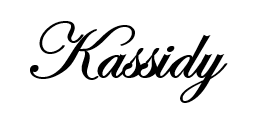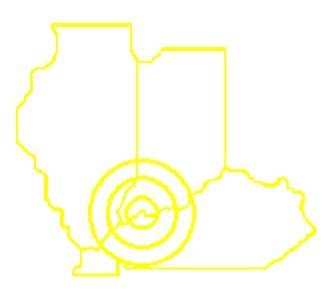
“Your grandfather was a full-blooded Cherokee Indian. This photo proves it,” my maternal family said. From my paternal side: “Your fifth great grandfather’s name was Solomon, like in the Bible. We’re Jewish.”
From the time I was old enough to comprehend what DNA even is, these are the stories I’d heard. As a young girl, I fully believed this information as fact. After all, my grandfather did have Native American features. And would my paternal family member really claim a Jewish heritage without any reason to do so? Yet, when my DNA results were returned just a few months ago, I had to face up to the facts.
Yep, the stories I grew up hearing–the stories I’d passed along to others around me when I was younger, believing them to be true–were 100% false. My DNA showed up no trace of Cherokee or Jewish heritage. Not even a drop. The same was true for my parents’ results. So how do researchers move on from finding out the ethnicity they thought they held is one they actually don’t? And how can we make sure the same error doesn’t befall the future generations?


As a historian, I’ll be the first to admit that I was pretty sad when I found out the Cherokee heritage I’d been so proud of–the fact that my ancestors had been the first people to settle America–was a sham. Likewise, I’d been honored to be a person of Jewish descent and, as a young teenager, had excitedly told kids in my youth group that my ancestors were God’s chosen people. When I found out that I’m not the descendant of brave Cherokee warriors or Jewish faith heroes, I felt a little lost at first. Admittedly, I even harbored a bit of annoyance at whoever first originated these claims of a false heritage, an ethnicity I’d believed in and yet didn’t actually have. I was afraid moving on would be a lengthy process, but over time, it hasn’t been as difficult as I first feared.
For starters, I focused on what heritage I do have. My Scottish ancestry (which had been mentioned in my family, but never as much as the Cherokee history) gives me a restored sense of pride. I thought about my Scottish ancestors who likely braved a long ocean journey, untasteful dried bread, and sea sickness to build a life in America. Maybe they left behind their kilts and bagpipes, or maybe they brought their culture to the “New World.” Either way, these ancestors are something to be proud of, as are my English and Irish ancestors. And hey, now that I know I’m 3% Irish, I can celebrate St. Patrick’s Day like I never have before. Oh, and who can forget the 1% Cameroon, Congo, and Bantu peoples? I can imagine that my African American forefathers and foremothers faced racial discrimination and horrible challenges–perhaps having been transported stateside on slave ships–yet they still forged on. Because of them, I’m here.
Besides, maybe my heritage isn’t what I once thought it was, but that doesn’t change who I am. I’m still the exact same person I was before I took a DNA test, even if the heritage I thought I once held has been altered. So if something similar happened to you after taking a DNA test, don’t mourn because you feel like your former heritage has been stripped away. Instead, find big ways and small ways to celebrate the new heritage you’ve only just now discovered.


I’d like to think that the spread of misinformation will stop with my generation. Sadly, though, I imagine the tales of courageous Cherokees and faithful Jews in my family won’t stop until everyone in my line has taken a DNA test. Still, how did this misinformation get started in the first place, and how can we stop its spread?
In college, I learned about an anomaly aptly dubbed “Cherokee Grandmother Syndrome.” The name is a bit self-explanatory, but we can go a bit deeper. With the Cherokee Grandmother Syndrome, it seems almost everyone has been told–or blindly believes–that they have a Native American heritage. In my family, it wasn’t a Cherokee grandmother, but rather a Cherokee grandfather. Family relation aside, we’ve almost all been told that we boast a Native American heritage. But…why?
There are several reasons, and I’m sure they vary by family. One likely reason, however, is that many Americans feel guilty (even subconsciously) for the atrocities that took place against Native Americans during the nineteenth century. I mean, Native Americans were removed from their southern lands in the 1830s, and–when they pushed west to establish new tribal lands–the westward expansion of the late 1800s once again displaced them. Not only were Native Americans displaced, though, but they were also often killed in battle or by diseases Europeans brought over. Like any nation, Americans have to grapple with a sometimes not so pretty past. All too often, it’s easier to deal with that past if we feel like it impacted our ancestors, too. Essentially, we can transition from, “My ancestors committed atrocities against Native Americans” to “I have a Native American ancestor who had atrocities committed against them.” No matter the atrocity or scenario, when we reason that our ancestors were the victims–not the victors–we view the history differently.
Probably another most common reason for Cherokee Grandmother Syndrome is simply because our predecessors found Native Americans “cool.” Especially with the rise of Western TV shows and movies in the 40s, 50s, and 60s, there was a co-culture of individuals who were simply captivated by the Wild West. It’s hard to deny the bravery and daring of Native Americans was impressive. Because of this, Cherokee Grandmother Syndrome likely just gained momentum. Many of these family legends weren’t meant to be mean-spirited or deceptive. Instead, a hopeful family member probably saw a picture of a dark haired grandma or grandpa with “Native American features” and started spreading details about a purported Cherokee heritage.
Thankfully, there are several ways we can make sure the same issue doesn’t happen to those who come after us! One easy way to set the record straight on our heritage is by taking a DNA test. Although one can argue that even full siblings can have various ethnicities show up in their results (since everyone inherits different parts of their parents’ DNA), having multiple people in your family take a test will let you know your ethnic background quite well.
Another way to stop the spread of Cherokee Grandmother Syndrome and other family-related misinformation is by verifying details before you share them with other people. Just because great-grandma or an uncle claims you have a certain heritage doesn’t mean you can always believe it. While those who came before us do have a lot to offer information-wise, we do have to be cautious when dealing with unverifiable “facts.” Even unintentionally, false information spreads fast, and we want to correct it where we can.


No matter what you thought your ethnic heritage was, it can be upsetting and startling to find out that what you’d once believed about your family history isn’t true. Even so, there are ways to find joy in your new-found DNA, and there are plenty of options for how to stop the misinformation spread. Regardless of your unique DNA results, having conversations with your family about your misinformed heritage and your real one are important. That’s the best way to ensure everyone is on the same–and correct–page about your ethnicity so that you can find happiness, peace, and reconciliation with your shared past. After all, no matter where our family first came from, we wouldn’t be who we are today without our ancestors.
Keep the History Alive!



